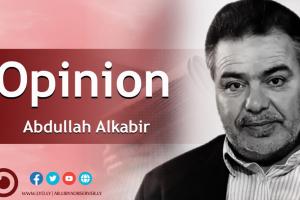By Abdullah Alkabir, political writer and commentator
Political stability prerequisite for economic reform

The Head of Government of National Unity has retracted the decision to lift fuel subsidies, even though the video circulating of the government meeting showed him saying that the decision was irreversible. The main reason for this retraction is the popular rejection of the step, which would have reversed the economic situation and raised prices to frightening levels, because prices of the service sector are linked to low fuel prices.
The argument that the government is relying on to lift fuel subsidies, and to standardize fuel prices with that of the neighbouring countries, is to cut off the smuggling trail, as about 30% of gasoline and diesel are smuggled east, west and south across the sea and desert, and because of the large difference in prices, smuggling gangs reap huge sums of money. This is so, despite the large allocations to security agencies from the public budget, according to Central Bank data, as smuggling operations continue at approximately the same pace.
There is no doubt that the best way to eliminate smuggling and the parallel market, whether for fuel or any other commodity, is to eliminate the double price of the same commodity. By removing the subsidy, the price will be determined according to the market formula, so there will no longer be a difference that tempts risk and smuggling. Undoubtedly, the smuggling mafias, and after having established an integrated base for smuggling, and having accumulated huge wealth by practicing this activity for nearly a decade, it will thwart any step that would rob it of this easy and guaranteed source, to continue seizing and smuggling cheap fuel.
However, confronting it will not pose a dilemma for this government or others, if the decision to end the subsidy is implemented and the risk of smuggling becomes futile, but the repercussions of this step on the people and on the market in the current situation are very serious, as Libyans depend on their transportation on private cars, for Public transportation is not available in most Libyan cities, with the exception of limited buses in some cities, that operate without organization or a stable network with clear lines and schedule, in addition to the fact that the Libyan citizen is not accustomed to it, because it is not part of the public system of movement. As for the market, the result will be a huge jump in prices, which will not be matched by the citizen’s ability to confront and adapt to it.
The controversy over this issue ended quickly after the government retreated, but some facts have emerged that require careful consideration.
First, there is a real need to lift fuel subsidies, but this step can only be implemented within an integrated package of economic reforms, so that lifting subsidies does not have any consequences detrimental to the people and therefore increase their burden.
Secondly, economic reforms cannot be random or makeshift ones. Economists must be consulted so that reforms are scientific and take into account all relevant aspects.
Thirdly, it is impossible to achieve any reforms in any field without ending the political crisis. The political and institutional division, imposed by some political and regional parties, is the main disaster that was like a locomotive that pulled all sectors behind it. The education, health, or services sectors were not spared, in addition to the economic ills, as political stability is the basis for organizing society and addressing any imbalance or failures in the remaining branches, such as the main tributary of the river that feeds the other branches and streams.
Political stability cannot be achieved by the current political class, and change requires conducting elections that are disrupted by this very class to preserve its influence and privileges, and the appropriate moment has not yet come to impose elections under international or local pressure.



